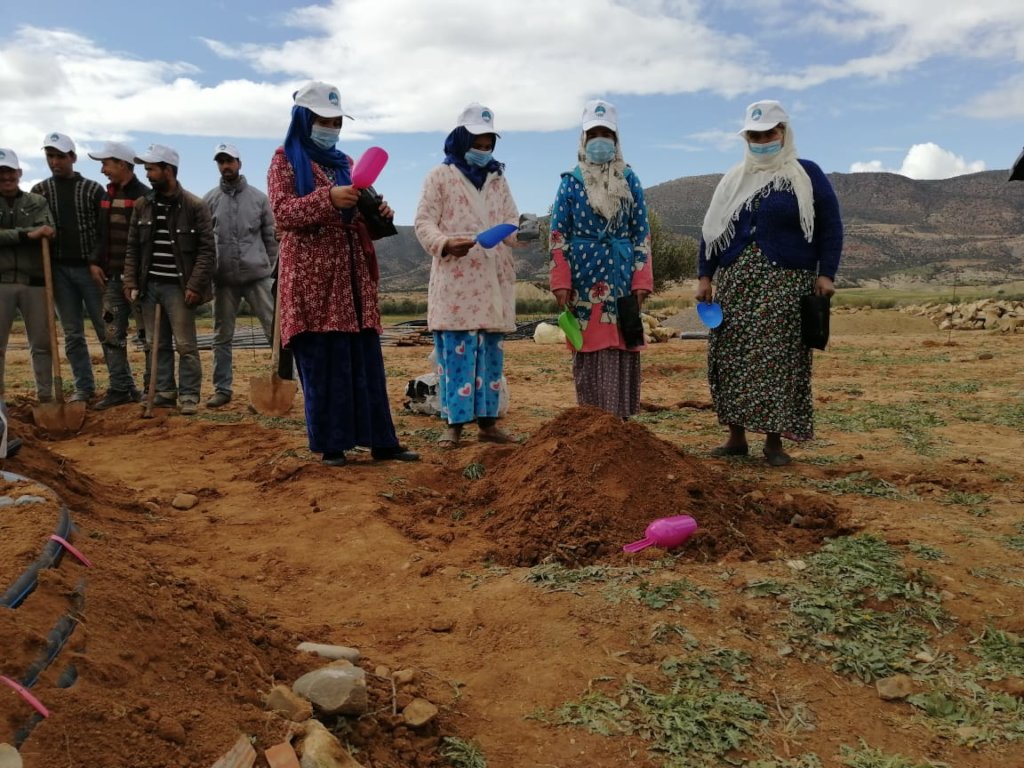By Megan Sprotte and Megan Williams | HAF-UVA Interns
In her recent essay, “The Labor of Agrodiversity in a Moroccan Oasis”, Karen Rignall examines the recent history of farming in the Mgoun valley in southern Morocco in order to explain how agrodiversity, labor, and tradition interact in current small-scale agrarian systems. Rignall emphasizes lines of thought that highlight the large extent that agricultural biodiversity is protected by small landholder farmers. She argues that certain kinds of agrodiversity may in fact be a new product of recent transformations or rejections of agricultural traditions. She emphasizes that, to a large extent, agrodiversity is protected by these farming households because what may appear as traditional agriculture may in fact be a new method that has emerged in response to the changing commodity markets that in turn transform labor regimes.
Farming practices are not simply a persistence of tradition, but rather an intentional practice in response to changing social, economic, and agroecological conditions. Thus, as the times change, farmers are forced to experiment with the cultivation of a wider variety of plants, promoting agrodiversity. Additionally, Rignall points out that this increased agrodiversity represents a privileged position for certain households that are located in water and land-rich areas.
In her case study that consisted of twelve months of ethnographic research in rural Morocco, agrodiversity was promoted through a reconfiguration of labor regimes, however, many households lacked access to the necessary resources, capital and labor that facilitated this transformation. Many farmers' crop regimes were limited to corn and maize simply because they could not afford the labor required to include crops such as tomatoes and vegetables. This is illustrative not only of the strong barriers that prevent people from escaping poverty, but also how these transformed labor regimes can highlight and enhance the current inequalities that exist in communities.
The situation in the Mgoun region of Morocco is not unique to just this farming community, but is the reality for millions of Moroccan farmers trying to make a livelihood in rural locations throughout the country. The High Atlas Foundation (HAF) has recognized these intractable barriers the communities are facing and has taken steps to help them overcome these challenges. HAF aims to promote agrodiversity and aid in the transformation of farming communities towards new methods of agriculture through the creation of nurseries and the planting of dozens of varieties of fruit trees and medicinal plants. These plants are native to the region and the demand for these goods on the market makes them both a sustainable and reliable source of income.
Beyond providing supplies, HAF supports the formation of cooperatives that allow community members to work together so that they all may benefit from these new crops and methods of farming. The social, political, and economic spheres are rapidly transforming both within Morocco and around the world, and agriculture will continue to be heavily influenced by it. Through facilitating the process of transforming agricultural traditions for rural farmers, the High Atlas Foundation is both promoting agrodiversity and helping to empower all members of these communities.
Project reports on GlobalGiving are posted directly to globalgiving.org by Project Leaders as they are completed, generally every 3-4 months. To protect the integrity of these documents, GlobalGiving does not alter them; therefore you may find some language or formatting issues.
If you donate to this project or have donated to this project, you can receive an email when this project posts a report. You can also subscribe for reports without donating.
Support this important cause by creating a personalized fundraising page.
Start a Fundraiser